- Home
- Louisa May Alcott
An Old-Fashioned Girl Page 18
An Old-Fashioned Girl Read online
Page 18
"Nobody can ask me to do any more, if they remember all I 've got to attend to before summer," said Trix, with an important air. "I 've got three women hard at work, and want another, but everyone is so busy, and ask such abominable prices, that I 'm in despair, and shall have to take hold myself, I 'm afraid."
"There 's a chance for Jane," thought Polly, but had n't courage "to speak out loud in meeting," just then, and resolved to ask Trix for work, in private.
"Prices are high, but you forget how much more it costs to live now than it used to do.
Mamma never allows us to beat down workwomen, but wishes us to pay them well, and economize in some other way, if we must," said Emma Davenport, a quiet, bright-eyed girl, who was called "odd " among the young ladies, because she dressed simply, when her father was a millionaire.
"Just hear that girl talk about economy! I beg your pardon, she 's some relation of yours, I believe!" said Belle, in a low tone.
"Very distant; but I 'm proud of it; for with her, economy does n't mean scrimping in one place to make a show in another. If every one would follow the Davenports' example, workwomen would n't starve, or servants be such a trouble. Emma is the plainest dressed girl in the room, next to me, yet any one can see she is a true gentlewoman,"
said Polly, warmly.
"And you are another," answered Belle, who had always loved Polly, in her scatter-brained way.
"Hush! Trix has the floor."
"If they spent their wages properly, I should n't mind so much, but they think they must be as fine as anybody, and dress so well that it is hard to tell mistress from maid. Why our cook got a bonnet just like mine (the materials were cheaper, but the effect was the same), and had the impertinence to wear it before my face. I forbid it, and she left, of course, which made papa so cross he would n't give me the camel's hair shawl he promised this year."
"It 's perfectly shameful!" said Miss Perkins, as Trix paused out of breath. "Servants ought to be made to dress like servants, as they do abroad; then we should have no more trouble," observed Miss Perkins, who had just made the grand tour, and had brought home a French maid.
"Perky don't practise as she preaches," whispered Belle to Polly, as Miss P. became absorbed in the chat of her other neighbors. "She pays her chamber girl with old finery; and the other day, when Betsey was out parading in her missis's cast-off purple plush suit, Mr. Curtis thought she was mademoiselle, and bowed to her. He is as blind as a bat, but recognized the dress, and pulled off his hat to it in the most elegant style. Perky adores him, and was mad enough to beat Betsey when she told the story and giggled over it. Betsey is quite as stylish and ever so much prettier than Perky, and she knows it, which is an aggravation."
Polly could n't help laughing, but grew sober a minute after, as Trix said, pettishly, "Well, I 'm sick of hearing about beggars; I believe half of them are humbugs, and if we let them alone they 'd go to work and take care of themselves. There 's altogether too much fuss made about charity. I do wish we could be left in peace."
"There can't be too much charity!" burst out Polly, forgetting her shyness all at once.
"Oh, indeed! Well, I take the liberty to differ from you," returned Trix, putting up her glass, and bestowing upon Polly her most "toploftical stare," as the girls called it.
I regret to say that Polly never could talk with or be near Trix without feeling irritated and combative. She tried to conquer this feeling, but she could n't, and when Trix put on airs, Polly felt an intense desire to box her ears. That eye-glass was her especial aversion, for Trix was no more near-sighted than herself, but pretended to be because it was the fashion, and at times used the innocent glass as a weapon with which to put down any one who presumed to set themselves up. The supercilious glance which accompanied her ironically polite speech roused Polly, who answered with sudden color and the kindling of the eyes that always betrayed a perturbed spirit, "I don't think many of us would enjoy that selfish sort of peace, while little children starve, and girls no older than us kill themselves because their dreadful poverty leaves them no choice but sin or death."
A sudden lull took place, for, though Polly, did not raise her voice, it was full of indignant emotion, and the most frivolous girl there felt a little thrill of sympathy; for the most utterly fashionable life does not kill the heart out of women, till years of selfish pleasure have passed over their heads. Trix was ashamed of herself; but she felt the same antagonism toward Polly, that Polly did toward her; and, being less generous, took satisfaction in plaguing her. Polly did not know that the secret of this was the fact that Tom often held her up as a model for his fiancée to follow, which caused that young lady to dislike her more than ever.
"Half the awful stories in the papers are made up for a sensation, and it 's absurd to believe them, unless one likes to be harrowed up. I don't; and as for peace, I 'm not likely to get much, while I have Tom to look after," said Trix, with an aggravating laugh.
Polly's needle snapped in two, but she did not mind it, as she said, with a look that silenced even sharp-tongued Trix, "I can't help believing what my own eyes and ears have seen and heard. You lead such safe and happy lives, you can't imagine the misery that is all round you; but if you could get a glimpse of it, it would make your hearts ache, as it has mine."
"Do you suffer from heartache? Some one hinted as much to me, but you looked so well, I could n't believe it."
Now that was cruel in Trix, more cruel than any one guessed; but girls' tongues can deal wounds as sharp and sudden as the slender stiletto Spanish women wear in their hair, and Polly turned pale, as those words stabbed her. Belle saw it, and rushed to the rescue with more good-will than wisdom.
"Nobody ever accused you of having any heart to ache with. Polly and I are not old enough yet to get tough and cool, and we are still silly enough to pity unhappy people, Tom Shaw especially," added Belle, under her breath.
That was a two-edged thrust, for Trix was decidedly an old girl, and Tom was generally regarded as a hapless victim. Trix turned red; but before she could load and fire again, Emma Davenport, who labored under the delusion that this sort of skirmishing was ill-natured, and therefore ill-bred, spoke up in her pleasant way, "Speaking of pitying the poor, I always wonder why it is that we all like to read and cry over their troubles in books, but when we have the real thing before us, we think it is uninteresting and disagreeable."
"It 's the genius that gets into the books, which makes us like the poverty, I fancy. But I don't quite agree that the real thing is n't interesting. I think it would be, if we knew how to look at and feel it," said Polly, very quietly, as she pushed her chair out of the arctic circle of Miss Perkins, into the temperate one of friendly Emma.
"But how shall we learn that? I don't see what we girls can do, more than we do now.
We have n't much money for such things, should n't know how to use it if we had; and it is n't proper for us to go poking into dirty places, to hunt up the needy. 'Going about doing good, in pony phaetons,' as somebody says, may succeed in England, but it won't work here," said Fanny, who had begun, lately, to think a good deal of some one beside herself, and so found her interest in her fellow-beings increasing daily.
"We can't do much, perhaps, just yet; but still there are things left undone that naturally fall to us. I know a house," said Polly, sewing busily as she talked, "where every servant who enters it becomes an object of interest to the mistress and her daughters. These women are taught good habits, books are put where they can get them, sensible amusements are planned for them sometimes, and they soon feel that they are not considered mere scrubs, to do as much work as possible, for as little money as possible, but helpers in the family, who are loved and respected in proportion to their faithfulness. This lady feels her duty to them, owns it, and does it, as conscientiously as she wants them to do theirs by her; and that is the way it ought to be, I think."
As Polly paused, several keen eyes discovered that Emma's cheeks were very red, and saw a smile l
urking in the corners of the mouth that tried to look demure, which told them who Polly meant.
"Do the Biddies all turn out saints in that well regulated family?" asked the irrepressible Trix.
"No; few of us do that, even in the parlor; but every one of the Biddies is better for being there, whether they are grateful or not. I ought not to have mentioned this, perhaps, but I wanted to show you one thing that we girls can do. We all complain about bad servants, most as much as if we were house-keepers ourselves; but it never occurs to us to try and mend the matter, by getting up a better spirit between mistress and maid.
Then there 's another thing we can do," added Polly, warming up. "Most of us find money enough for our little vanities and pleasures, but feel dreadfully poor when we come to pay for work, sewing especially. Could n't we give up a few of the vanities, and pay the seamstresses better?"
"I declare I will!" cried Belle, whose conscience suddenly woke, and smote her for beating down the woman who did her plain sewing, in order that she might have an extra flounce on a new dress. "Belle has got a virtuous fit; pity it won't last a week," said Trix.
"Wait and see," retorted Belle, resolving that it should last, just to disappoint "that spiteful minx;" as she sweetly called her old school-mate.
"Now we shall behold Belle galloping away at a great pace, on her new hobby. I should n't be surprised to hear of her preaching in the jail, adopting a nice dirty little orphan, or passing round tracts at a Woman's Rights meeting," said Trix, who never could forgive Belle for having a lovely complexion, and so much hair of her own that she never patronized either rats, mice, waterfalls, switches, or puff-combs.
"Well, I might do worse; and I think, of the two, I 'd rather amuse myself so, than as some young ladies do, who get into the papers for their pranks," returned Belle, with a moral air.
"Suppose we have a little recess, and rest while Polly plays to us. Will you, Polly? It will do us good; they all want to hear you, and begged I 'd ask."
"Then I will, with pleasure"; and Polly went to the piano with such obliging readiness, that several reproachful glances fell upon Trix, who did n't need her glass to see them.
Polly was never too sad, perturbed, or lazy to sing, for it was almost as easy to her as breathing, and seemed the most natural outlet for her emotions. For a minute her hands wandered over the keys, as if uncertain what to play; then, falling into a sad, sweet strain, she sang "The Bridge of Sighs." Polly did n't know why she chose it, but the instinct seemed to have been a true one, for, old as the song was, it went straight to the hearts of the hearers, and Polly sung it better than she ever had before, for now the memory of little Jane lent it a tender pathos which no art could give. It did them all good, for music is a beautiful magician, and few can resist its power. The girls were touched by the appeal; Polly was lifted out of herself, and when she turned round, the softened look on all the faces told her that for the moment foolish differences and frivolous beliefs were forgotten in the one womanly sentiment of pity for the wrongs and woes of which the listeners' happy lives were ignorant.
"That song always makes me cry, and feel as if I had no right to be so comfortable,"
said Belle, openly wiping her eyes on a crash towel.
"Fortunately such cases are very rare," said another young lady, who seldom read the newspapers.
"I wish they were, but I 'm afraid they are not; for only three weeks ago, I saw a girl younger than any of us, and no worse, who tried to destroy herself simply because she was so discouraged, sick, and poor," said Polly.
"Do tell about her," cried Belle, eagerly.
Feeling that the song had paved the way for the story, and given her courage to tell it, Polly did tell it, and must have done it well, for the girls stopped work to listen, and when she ended, other eyes beside warm-hearted Belle's were wet. Trix looked quite subdued; Miss Perkins thawed to such a degree, that something glittered on her hand as she bent over the pink pinafore again, better and brighter than her biggest diamond; Emma got up and went to Polly with a face full of affectionate respect, while Fanny, moved by a sudden impulse, caught up a costly Sèvres plate that stood on the etagère, and laying a five-dollar bill in it, passed it round, quoting Polly's words, "Girls, I know you
'll like to help poor little Jenny 'begin again, and do better this time.' "
It was good to see how quickly the pretty purses were out, how generously each gave of its abundance, and what hearty applause broke from the girls, as Belle laid down her gold thimble, saying with an April face, "There, take that; I never have any money, somehow it won't stay with me, but I can't let the plate pass me this time."
When Fanny brought the contributions to Polly, she just gathered it up in her two hands with such a glad, grateful face, the girls wished they had had more to give.
"I can't thank you enough," she said, with an eloquent little choke in her voice. "This will help Jenny very much; but the way in which it was done will do her more good than double the money, because it will prove to her that she is n't without friends, and make her feel that there is a place in the world for her. Let her work for you in return for this; she don't ask alms, she only wants employment and a little kindness, and the best charity we can bestow is to see that she has both."
"I 'll give her as much sewing as she wants, and she can stay at our house while she does it, if she needs a home," said Trix, in a spasm of benevolence.
"She does n't need a home, thank you; Miss Mills has given half of hers, and considers Jane her child," answered Polly, with proud satisfaction in the fact.
"What an old dear!" cried Belle.
"I want to know her. May I?" whispered Emma.
"Oh, yes; I 'm glad to make her known to any one. She is a quiet little old lady, but she does one heaps of good, and shows you how to be charitable in the wisest way."
"Do tell us about it. I 'm sure I want to do my duty, but it 's such a muddle, I don't know how," said Belle.
Then, quite naturally, the conversation fell upon the great work that none should be too busy to think of, and which few are too young or too poor to help on with their mite. The faces grew more earnest, the fingers flew faster, as the quick young hearts and brains took in the new facts, ideas, and plans that grew out of the true stories, the sensible hints, the successful efforts which Polly told them, fresh from the lips of Miss Mills; for, of late, Polly had talked much with the good lady, and learned quickly the lessons her unselfish life conveyed. The girls found this more interesting than gossip, partly owing to its novelty, doubtless; but the enthusiasm was sincere while it lasted, and did them good. Many of them forgot all about it in a week, but Polly's effort was not lost, for Emma, Belle, and Fanny remained firm friends to Jane, so kindly helping her that the poor child felt as if she had indeed been born again, into a new and happy world.
Not till long afterward did Polly see how much good this little effort had done her, for the first small sacrifice of this sort leads the way to others, and a single hand's turn given heartily to the world's great work helps one amazingly with one's own small tasks. Polly found this out as her life slowly grew easier and brighter, and the beautiful law of compensation gave her better purposes and pleasures than any she had lost. The parents of some of her pupils were persons of real refinement, and such are always quick to perceive the marks of culture in others, no matter where they find them. These, attracted first by Polly's cheerful face, modest manners, and faithful work, soon found in her something more than a good teacher; they found a real talent for music, an eager desire for helpful opportunities, and a heart grateful for the kindly sympathy that makes rough places smooth. Fortunately those who have the skill to detect these traits also possess the spirit to appreciate and often the power to serve and develop them. In ways so delicate that the most sensitive pride could not resent the favor, these true gentlefolk showed Polly their respect and regard, put many pleasures in her way, and when they paid her for her work, gave her also the hearty thanks that takes away
all sense of degradation even from the humblest service, for money so earned and paid sweetens the daily bread it buys, and makes the mutual obligation a mutual benefit and pleasure.
A few such patrons did much for Polly, and the music she gave them had an undertone of gratitude that left blithe echoes in those great houses, which money could not buy.
Then, as her butterfly acquaintances deserted her, she found her way into a hive of friendly bees, who welcomed her, and showed her how to find the honey that keeps life sweet and wholesome. Through Miss Mills, who was the counsellor and comforter of several, Polly came to know a little sisterhood of busy, happy, independent girls, who each had a purpose to execute, a talent to develop, an ambition to achieve, and brought to the work patience and perseverance, hope and courage. Here Polly found her place at once, for in this little world love and liberty prevailed; talent, energy, and character took the first rank; money, fashion, and position were literally nowhere; for here, as in the big world outside, genius seemed to blossom best when poverty was head gardener. Young teachers, doing much work for little pay; young artists, trying to pencil, paint, or carve their way to Rome; young writers, burning to distinguish themselves; young singers, dreaming of triumphs, great as those of Jenny Lind; and some who tried to conquer independence, armed only with a needle, like poor Jane. All these helped Polly as unconsciously as she helped them, for purpose and principle are the best teachers we can have, and the want of them makes half the women of America what they are, restless, aimless, frivolous, and sick.
To outsiders that was a very hard-working and uneventful winter to Polly. She thought so herself; but as spring came on, the seed of new virtues, planted in the winter time, and ripened by the sunshine of endeavor, began to bud in Polly's nature, betraying their presence to others by the added strength and sweetness of her character, long before she herself discovered these May flowers that had blossomed for her underneath the snow.

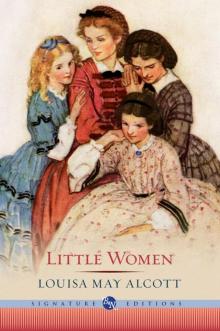 Little Women
Little Women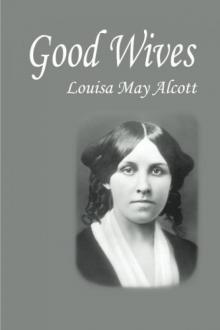 Good Wives
Good Wives Jo's Boys
Jo's Boys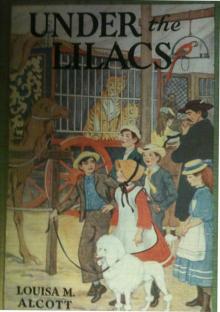 Under the Lilacs
Under the Lilacs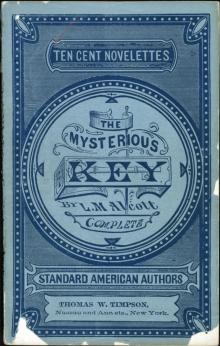 The Mysterious Key and What It Opened
The Mysterious Key and What It Opened The Inheritance
The Inheritance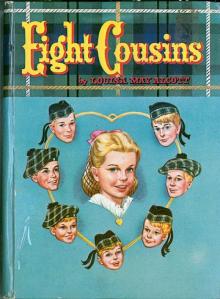 Eight Cousins
Eight Cousins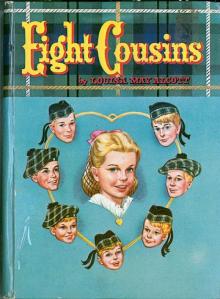 Eight Cousins; Or, The Aunt-Hill
Eight Cousins; Or, The Aunt-Hill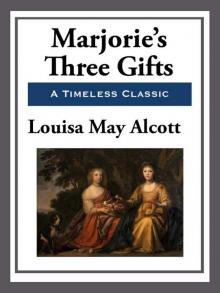 Marjorie's Three Gifts
Marjorie's Three Gifts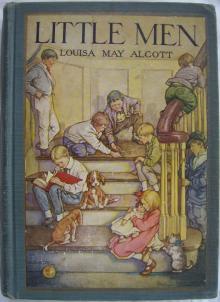 Little Men
Little Men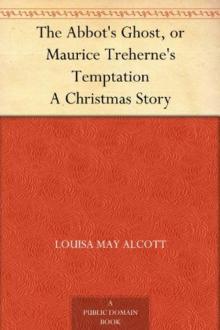 The Abbot's Ghost, or Maurice Treherne's Temptation: A Christmas Story
The Abbot's Ghost, or Maurice Treherne's Temptation: A Christmas Story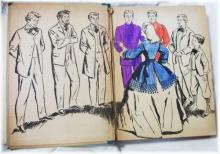 Rose in Bloom
Rose in Bloom Shawl-Straps
Shawl-Straps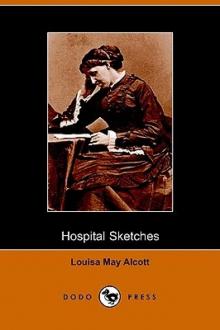 Hospital Sketches
Hospital Sketches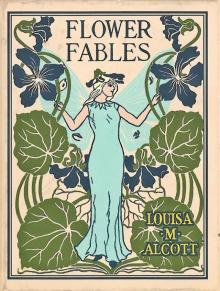 Flower Fables
Flower Fables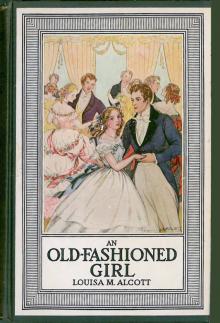 An Old-Fashioned Girl
An Old-Fashioned Girl The Candy Country
The Candy Country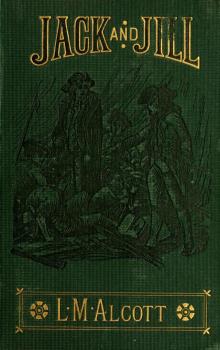 Jack and Jill
Jack and Jill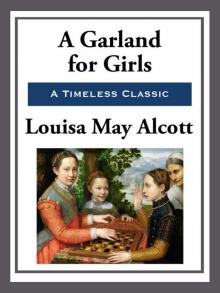 A Garland for Girls
A Garland for Girls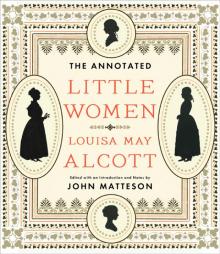 The Annotated Little Women
The Annotated Little Women A Classic Christmas
A Classic Christmas A Merry Christmas
A Merry Christmas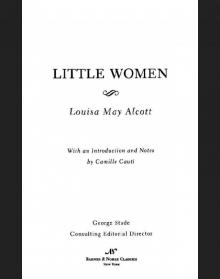 Little Women (Barnes & Noble Classics Series)
Little Women (Barnes & Noble Classics Series)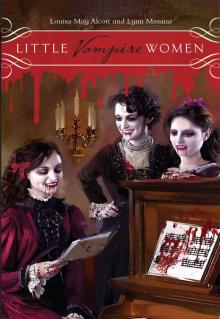 Little Vampire Women
Little Vampire Women